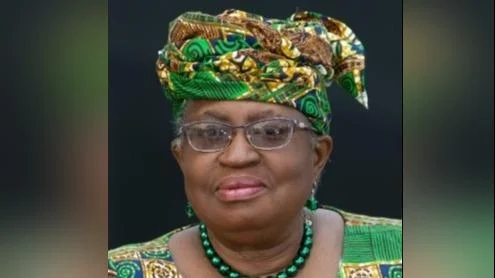The Second Central Asia Trade Policy Forum convened in Ashgabat, Turkmenistan, eight years after its inaugural session. Representatives from Azerbaijan, Kazakhstan, the Kyrgyz Republic, Tajikistan, Turkmenistan, and Uzbekistan gathered to discuss challenges in WTO accession negotiations and shared experiences in domestic coordination processes. Key topics included trade facilitation's potential impact on regional trade flows through the Middle Corridor and utilizing trade policy to achieve climate goals.
During a high-level session titled "Central Asia in the Multilateral Trading System: The Case for WTO Accession," Director-General Okonjo-Iweala emphasized the region's significant role within the global multilateral trading system. She noted that implementing the Trade Facilitation Agreement could advance sustainable connectivity in Central Asia.
Representatives from both WTO member countries and acceding governments shared their experiences regarding lessons learned and benefits of WTO membership. Arman Shakkaliyev, Kazakhstan’s Minister of Trade and Integration, highlighted that 90% of Kazakhstan's foreign trade involves WTO members. He stated, “Kazakhstan firmly believes the accession of Central Asian countries and Azerbaijan to the WTO will strengthen trade and economic cooperation in our region.”
Ambassador Zhanar Aitzhan reflected on how WTO membership diversified Kazakhstan's foreign direct investment (FDI) portfolio. Before joining the WTO, 70% of FDI was concentrated in commodity sectors; now, eight years post-accession, 50% targets non-extractive sectors. Timur Suleimenov, Governor of the Central Bank who chaired the 12th Ministerial Conference in Geneva, reaffirmed Kazakhstan’s commitment to the WTO.
Tajikistan’s Deputy Minister of Economic Development and Trade Ahliddin Nuriddinzoda discussed how WTO membership integrated Tajikistan into the global economy. He mentioned that a trade policy review conducted in 2021 helped evaluate economic achievements. Ms Syiadat Ormonova from Kyrgyzstan pointed out that adhering to most favored nation (MFN) and national treatment principles expanded geographical trade reach and liberalization led to growth in telecommunication services.
Azizbek Urunov from Uzbekistan underscored that their Strategy-2030 prioritizes WTO accession as it would streamline transit routes through Asia and enhance productivity by accessing global markets. Ylham Yarashov from Turkmenistan called the WTO a catalyst for economic transformation while announcing plans to submit Turkmenistan's Memorandum on Foreign Trade Regime (MFTR). Nazrin Mirzazada from Azerbaijan highlighted efforts towards diversifying its economy away from oil dependency through FDI attraction.
Representatives from international organizations such as ADB, ITC, World Bank, Islamic Development Bank, UNECE, and UN Trade provided updates on support initiatives in Central Asia. Lyaziza Sabyrova of ADB noted new momentum following an MoU signed with WTO in May 2024 and reaffirmed support for CAREC members integrating into the global economy under CAREC 2030 Strategy.
Daria Karman representing ITC acknowledged Central Asia as a focus region for promoting intra-regional and international trade through domestic reforms facilitated by EU-funded projects aimed at assisting Uzbekistan’s and Turkmenistan’s accession to the WTO.
Government representatives also shared success stories about technical assistance implementation while calling for enhanced coordination among partners. The next Forum is scheduled for 2025.
___

